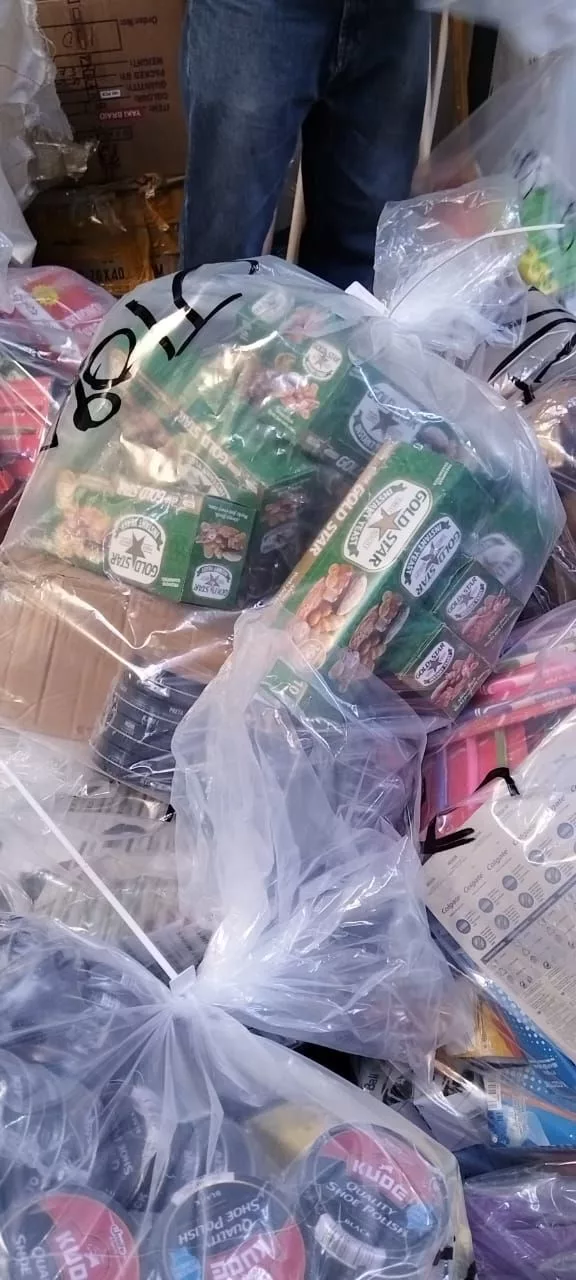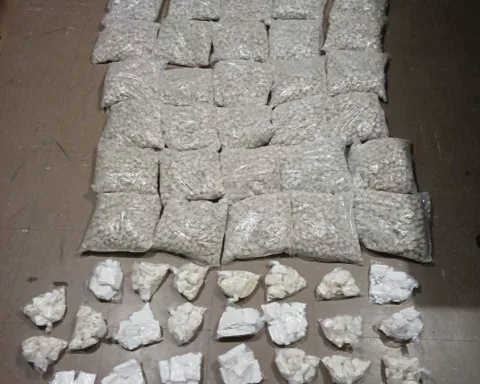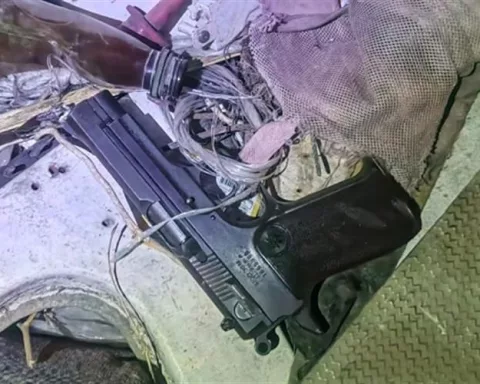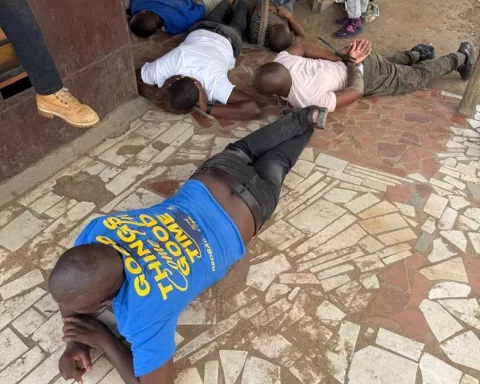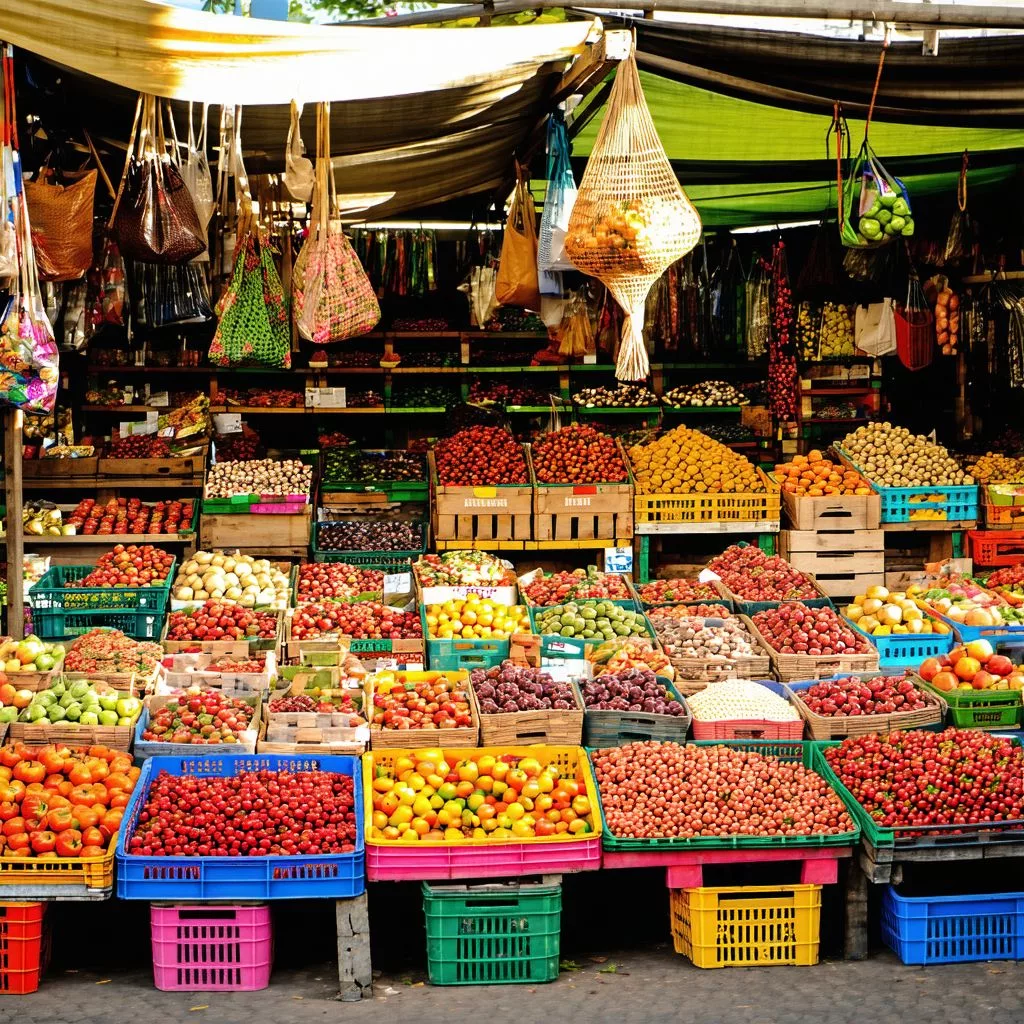In Johannesburg, the South African Police recently made a big move against fake goods, seizing over 6,000 counterfeit items worth R3 million. This operation, involving multiple law enforcement teams, targeted busy shopping centers, taking action to protect shoppers and local businesses from harmful knock-offs. Along with the impressive haul of fake clothing, watches, and medicines, two illegal immigrants were also arrested. This effort shows a strong commitment to keeping the city’s economy safe and ensuring that consumers can trust the products they buy. Johannesburg is standing firm against counterfeit goods, shining a light on its vibrant heart.
What is the recent crackdown on counterfeit goods in Johannesburg?
The South African Police Service recently seized over 6,000 counterfeit items valued at R3 million in Johannesburg. This operation, involving multiple law enforcement agencies, targeted illegal trade networks in shopping centers, highlighting the importance of safeguarding consumer safety and the local economy from counterfeit goods.
The Battle Against Counterfeit Goods in Johannesburg
In the lively center of Johannesburg, a bustling city driven by commerce and a vibrant economy, a major operation took place to tackle a pervasive issue. Recently, the South African Police Service (SAPS), supported by dedicated crime-fighting partners, executed a meticulously planned crackdown on the illegal trade of counterfeit goods. This significant operation resulted in the confiscation of fake merchandise worth over R3 million, striking a substantial blow to the underground market thriving within the city’s core.
Johannesburg’s Central Business District draws both shoppers and tourists, creating a fertile environment for those looking to exploit the city’s economic vibrancy. Beneath this bustling commercial hub lies a shadowy network that threatens the local economy and deceives unsuspecting consumers. Counterfeit goods, expertly crafted to mimic authentic products, flood these markets, posing risks to consumer safety and undermining legitimate business ventures.
The diligent efforts of the National Counterfeit Goods Unit, working in tandem with the Gauteng Provincial Counterfeit Unit and various law enforcement agencies, emphasized their unwavering commitment to addressing this issue. Their coordinated actions culminated in a strategic strike on Friday, 25 October 2024. Armed with search and seizure warrants, the teams targeted shopping centers known for distributing counterfeit merchandise, determined to dismantle the networks sustaining this illegal trade.
Precision and Collaboration in Operation
The execution of this operation showcased remarkable precision and collaboration. Public Order Policing units ensured the mission proceeded smoothly, maintaining order amidst the city’s hustle and bustle. The South African Revenue Services (SARS) played a critical role in identifying financial violations, while the South African Health Products Regulatory Authority (SAHPRA) scrutinized pharmaceuticals for safety compliance. The Johannesburg Metropolitan Police Department (JMPD) and private security personnel also played vital roles in the operation’s success.
The results of this decisive effort were impressive. Authorities confiscated over 6,000 counterfeit items, encompassing a wide range of products. Pharmaceuticals, posing significant health risks, were among the most concerning items seized. Additionally, clothing, accessories, watches, bags, cosmetics, and perfumes formed part of the haul, each a counterfeit version of popular brands designed to deceive unwitting consumers.
Beyond the immediate success of seizing counterfeit goods, this operation represents a broader commitment by SAPS and its partners to protect consumers and preserve the integrity of South Africa’s economy. The illicit trade in counterfeit goods affects everyone, from the unsuspecting consumer to legitimate businesses struggling to compete against a flood of cheap, low-quality products.
Broader Implications and Historical Context
During the operation, authorities arrested two suspects, both foreign nationals residing illegally in the country. Their capture highlights the complex interplay between illegal immigration and the black-market trade in counterfeit goods. These arrests not only disrupt the immediate operations of the counterfeit network but also send a clear message about the wider consequences of engaging in such illicit activities.
Counterfeiting has historically plagued economies around the globe, from Renaissance Europe, where counterfeiters undermined guilds, to modern digital piracy infringing on intellectual property rights. The challenges faced in Johannesburg form part of this ongoing narrative, reflecting the adaptability of those who operate within legal grey areas. Technological advancements have only enhanced the sophistication of counterfeit operations, making the role of enforcement agencies all the more critical.
Efforts to combat the spread of counterfeit goods are multifaceted. Beyond enforcement, public awareness is essential. Educating consumers about the risks associated with counterfeit products, such as potential health hazards from unregulated pharmaceuticals and the economic impact of supporting such trades, is vital. Informative campaigns can enhance the work of law enforcement by cultivating a more discerning consumer base less likely to fall victim to counterfeit schemes.
Preserving Authenticity in Commerce and Culture
The art world has long grappled with the concept of authenticity, a theme echoed in movements like the Renaissance, which celebrated genuine craftsmanship. This historical perspective adds a cultural dimension to the fight against counterfeit goods. Just as the Renaissance aimed to elevate authentic artistic expression, modern efforts to eradicate counterfeit trade strive to preserve the integrity of legitimate commerce and creativity.
As Johannesburg continues its evolution as a major commercial and cultural hub, protecting its economic and social ecosystem becomes paramount. Operations like the recent crackdown serve as crucial reminders of the ongoing battle against the counterfeit trade and the dedication required to overcome it. Every success, confiscated item, and arrest contributes to a broader narrative of resilience and determination in facing challenges that threaten to undermine trust and prosperity.
In the vibrant tapestry of Johannesburg’s urban life, where past and present converge, efforts to eliminate counterfeit goods symbolize more than just law enforcement. They represent a commitment to safeguarding the essence of commerce, culture, and community within this dynamic metropolis. As the city progresses, guided by both history and innovation, its guardians remain resolute in their mission to ensure that the shadows of counterfeit trade do not obscure Johannesburg’s bright and bustling future.
FAQ: Cracking Down on Counterfeit Goods in Johannesburg
What was the recent operation against counterfeit goods in Johannesburg?
The South African Police Service conducted a major operation in Johannesburg, seizing over 6,000 counterfeit items valued at R3 million. This operation targeted busy shopping centers and aimed to protect consumers and local businesses from the risks associated with counterfeit goods.
What types of counterfeit items were seized during the operation?
The operation resulted in the confiscation of a wide range of counterfeit products, including fake clothing, watches, medicines, cosmetics, bags, and perfumes. Pharmaceuticals were particularly concerning due to the potential health risks they pose to consumers.
Were any arrests made during the operation?
Yes, two suspects were arrested during the crackdown. Both individuals were foreign nationals residing illegally in South Africa, highlighting the connection between illegal immigration and the counterfeit trade.
How did law enforcement agencies collaborate during this operation?
The operation involved multiple agencies, including the National Counterfeit Goods Unit, Gauteng Provincial Counterfeit Unit, South African Revenue Services (SARS), and the Johannesburg Metropolitan Police Department (JMPD). Their coordinated efforts ensured the operation ran smoothly and effectively, maintaining public order and addressing financial violations.
What are the broader implications of the counterfeit goods trade?
Counterfeit goods undermine the local economy, deceive consumers, and pose health risks. The trade affects legitimate businesses that struggle to compete against low-quality products. This operation reflects a broader commitment by law enforcement to protect consumers and maintain economic integrity.
How can consumers protect themselves from counterfeit goods?
To safeguard against counterfeit products, consumers should educate themselves about the risks associated with fake goods, especially regarding health and safety. Being aware of the legitimate sources for products and participating in public awareness campaigns can help create a more discerning consumer base less likely to fall victim to counterfeit schemes.

